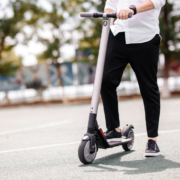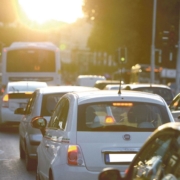“E-scooters are part of the mobility future of this country”
By Matthew Bezzina, eCabs CEO
E-scooters are part of the mobility future of Malta and their role is set to become even bigger.
Some may think that e-scooters are a competitor to the cab industry. Unfortunately this is a typical myopic perspective advocated by those who believe in protectionism rather than the dynamics of an open and modern economy.
Our mission has always been to provide an alternative, sustainable and effective means of transport other than the private car. The private car is increasingly becoming a heavy and expensive burden on our infrastructure.
The average person makes around 3.3 trips a day. A good percentage of these trips are done using a private car. Which 95% of the time is lying idle and parked but still occupying space on the roads for free. In today’s terms this translates to prime space that comes at a high premium.
If only one considers the opportunity cost of time and space, it is already enough reason to understand that a private car equates to a lot of missed opportunities.
Therefore, it goes without saying that as a company committed to promoting alternative mobility means other than private cars, we’re four-square behind the widespread use of e-scooters.
It is commendable that the authority has acted fast to regulate the use of e-scooters. And not to allow the law of the jungle to prevail in such a sensitive domain. A modern country deserves a responsive regulatory environment and certainly doesn’t afford gaps which could jeopardise the safety of drivers and the public.
Proper enforcement of E-scooters in Malta is key
The first issue that we need to consider is that of risk. Space in Malta is limited. Our road network is one of the densest networks in the world. Most streets are narrow, and two thirds of these streets are taken by the road. Not to mention that a large portion is taken by parking spaces for idle cars. And the very little remaining space has to be shared between pedestrians, bicycles and now e-scooters. This limited space that has to be shared means increased risk for all road users.
The only way to manage this risk is through proper enforcement and this is why the proposed regulation is a step in the right direction towards ensuring that the service can grow in a sustainable way.
Finally, it is in everyone’s interest that e-scooters in Malta operate safely and without endangering other road users. The authorities need to make sure that the right legislation is in place so that all stakeholders are protected. Only proper and responsible monitoring can contribute towards the service to grow organically.
If we just consider accessibility, the use of an e-scooter makes it an ideal fit to any multi-modal pattern of commuting. Someone on an e-scooter can easily ride a bus, board a ferry and yes why not, even call an eCab and travel with his e-scooter. We will go the extra-mile to send e-scooter riders a cab that makes the commute with their e-scooter an easier and more fulfilling experience!
E-scooters have an important role to play in Malta. And as the ongoing quest for better and more efficient mobility continues, their role is set to become even bigger

